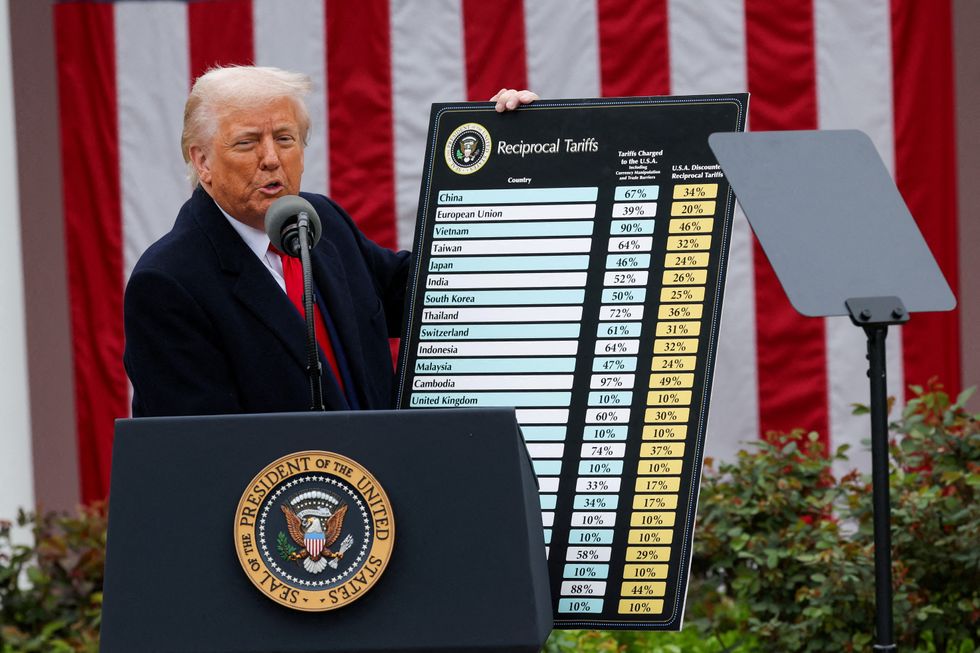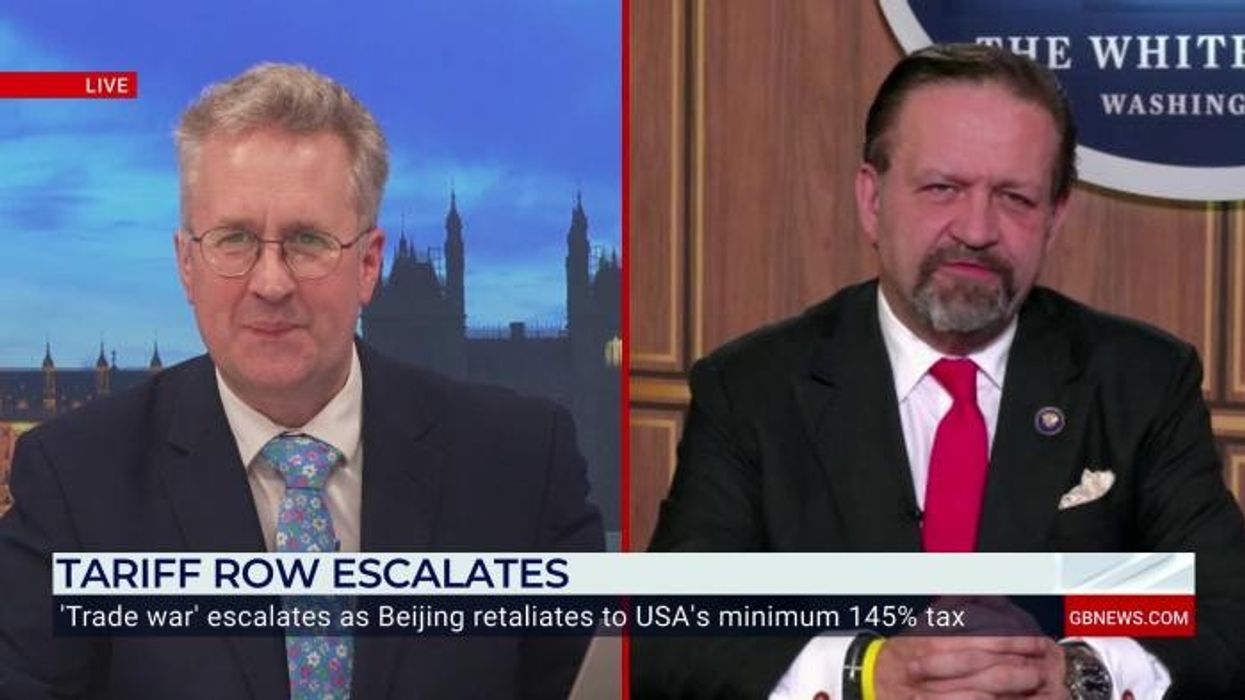Donald Trump announces new tariffs which risk crippling major UK industry

'The retaliation will kill our industry,' William Reinsch, a former senior commerce official said
Don't Miss
Most Read
Latest
A shock move by Donald Trump could deal a devastating blow to one of Britain’s fastest-growing sectors.
The US president has announced a 100 per cent tariff on films made outside the United States, in a bid to revive the American movie industry.
Trump explained that the American industry was dying a “very fast death” because of incentives other countries were offering to lure filmmakers.
He said: "This is a concerted effort by other nations and, therefore, a national security threat. It is, in addition to everything else, messaging and propaganda."
Trump posted on Truth Social: “WE WANT MOVIES MADE IN AMERICA, AGAIN!”
The tariff plan will apply to any foreign-made film entering the US market, and the president said he had authorised government agencies — including the US Department of Commerce — to begin implementation immediately.
Commerce secretary Howard Lutnick responded: “We’re on it.” However, neither he nor Trump provided any further detail on how the tariffs would work.

Trump posted on Truth Social: “WE WANT MOVIES MADE IN AMERICA, AGAIN!
| Unsplash/Jake HillsIt remains unclear whether streaming services like Netflix or Disney+ would be covered, or whether the tariff would be based on a film’s production cost, sale value or box office revenue.
What is clear is that the move could severely impact the UK’s film and television industry, which has become a production hub for Hollywood studios in recent years.
In the past three years alone, film studio space in Britain has nearly doubled, with major US titles - including Mission: Impossible - being filmed across the country.
That surge in production has been fuelled by UK Government tax relief, which offers incentives to encourage overseas investment and job creation in the creative sector.
But Trump’s tariff threatens to unravel that growth. In 2023, around half of all American production spending on film and TV projects over $40 million took place outside the US, according to research firm ProdPro.
And Britain ranks near the top of that list. A ProdPro survey found that California was only the sixth most preferred filming location, behind Toronto, Britain, Vancouver, Central Europe and Australia.

In the past three years alone, film studio space in Britain has nearly doubled, with major US titles — including Mission: Impossible
| SAMSUNG PRESS OFFICEHollywood executives were reportedly scrambling on Sunday night to understand the implications. The Motion Picture Association, which represents major US studios like Walt Disney and Universal Pictures, had no immediate comment.
Trump’s remarks reflect growing pressure from within the US to re-domesticate film production, which has been drifting abroad for years. Governments in Canada, Australia, New Zealand and across Europe offer generous tax credits and cash rebates to attract production.
British tax breaks have been a key part of the UK’s film success story — but they now risk becoming a liability if Trump’s tariffs stick.
The global content production market is worth an estimated $248 billion (£186.8 billion) in 2024, according to Ampere Analysis. But not everyone in the US is celebrating Trump’s move.
 Donald Trump has made tariffs the focus of his economic a | REUTERS
Donald Trump has made tariffs the focus of his economic a | REUTERSWilliam Reinsch, a former senior commerce official and fellow at the Center for Strategic and International Studies, warned: "The retaliation will kill our industry. We have a lot more to lose than to gain."
He added: “It would be difficult to make a national security or national emergency case for films.”
That hasn’t stopped Trump from pushing ahead. In January, he appointed actors Jon Voight, Sylvester Stallone and Mel Gibson to spearhead efforts to revive American cinema and bring production back to the US, promising to make Hollywood “bigger, better and stronger than ever before.”
The US film sector has been in steady decline, with film and TV production in Los Angeles falling nearly 40 per cent over the past decade, according to tracking group FilmLA.








